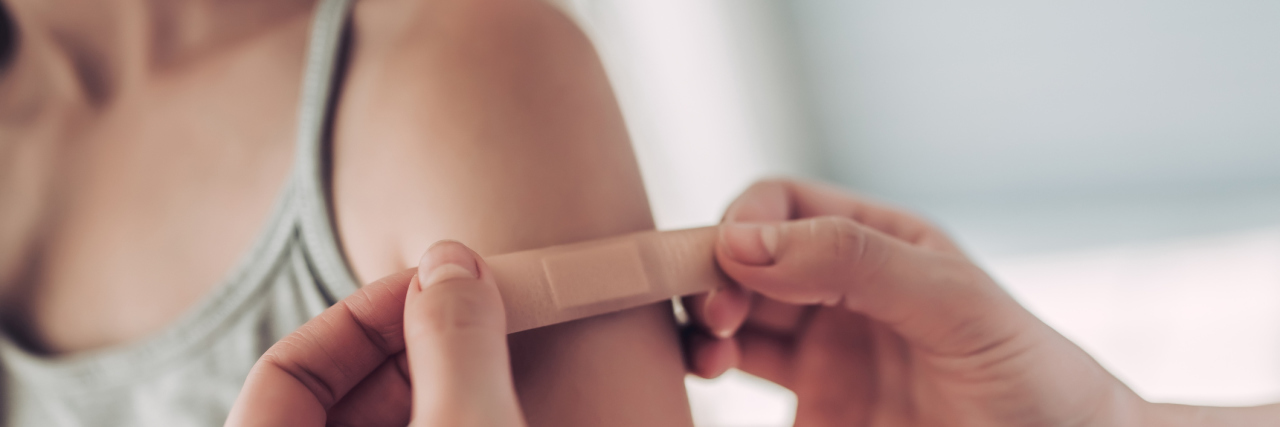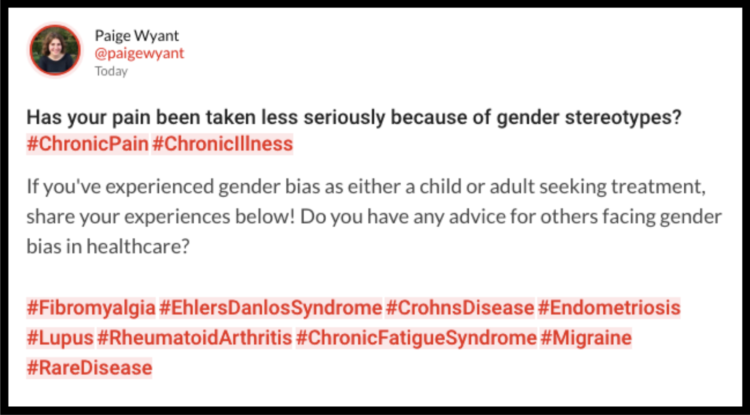New Yale Study Finds That Adults Take Girls' Pain Less Seriously
A new Yale study published in the Journal of Pediatric Psychology on Jan. 4 found that adults often take boys’ pain more seriously than girls’.
Researchers asked a diverse sample of American adults to watch an identical video of the same 5-year-old child receiving a finger-stick in a doctor’s office. Though all the participants saw the same exact video of the same child behaving the same way, one group was told the child was named “Samuel” and the other group was told the child was named “Samantha.” After watching the video, participants were asked to rate how much pain they thought the child experienced and displayed during the finger-stick.
Ultimately, the group of participants who knew the child as “Samuel” said they thought he was in higher levels of pain than the group who knew the child as “Samantha.” This research backs up earlier studies about the gender bias that exists in pain assessment. Due to common gender stereotypes that “boys are more stoic” and “girls are more emotive,” a boy’s expression of pain is often taken more seriously than a girl’s expression of pain.
“We really hope that these findings will lead to further investigation into the potential role of biases in pain assessment and health care more generally,” Joshua Monrad, one of the study’s authors, told YaleNews. “If the phenomena that we observed in our studies generalize to other contexts, it would have important implications for diagnosis and treatment. Any biases in judgments about pain would be hugely important because they can exacerbate inequitable health care provision.”
It’s important we take pain and symptoms seriously and ignore gender stereotypes. Not doing so can lead to delayed diagnoses and serious health complications.
Have you experienced gender bias? Join the conversation below!
We wanted to hear from some of those in our Mighty chronic pain community who dealt with gender bias during childhood, so we asked them to share their experiences with us.
Check out what they said below:
- “I had horrible knee pain at 11 and wound up on crutches for a number of months because I couldn’t put any weight on my knee. The specialist took some scans of my knee (that’s all) couldn’t find anything and decided I was making it up for attention because my brother had knee issues and I didn’t want to be left out. His knee problems were taken seriously from the start, even before they did any scans. My teachers said the same thing to my mother and would make me sit on the floor despite the pain I was in and that I couldn’t get up. Turns out I had horrible back problems and damage to the sciatic nerve which wraps around the knee cap and was also getting deferred pain and have been suffering with [debilitating] back pain for the past 18 years. And I was diagnosed with fibromyalgia a few years ago. But I was ‘just a preteen girl looking for attention.’” – Janelle F.
- “My grandmother called me a hypochondriac and my doctor heard that. That label stuck for a long time. I do think being a girl labeled me as more dramatic and less serious than a boy. I have lupus SLE and fibromyalgia that I’ve had symptoms since preteen. I think those labels did deter my diagnoses quite a bit.” – Melissa K.H.
- “I was told I was just an anxious girl and I needed to ‘push through’ my pain and fatigue. And that my body was ‘playing tricks on me.’ It took over two years to actually be tested for anything. Turns out I was terribly anemic and needed an emergency scope.” – Hannah H.
- “Being a girl growing up in a ton of pain was awful. I was always considered sensitive and overdramatic, even by medical professionals. I was first told it was growing pains, then when I started having chronic back pain, it was my weight and being too sensitive. I had one doctor even say that she was diagnosing me with fibromyalgia as a ‘last resort’ since she can’t find anything wrong with me. Then when I started having chest issues, it was called panic attacks. They did multiple panels for everything you can think of and I wasn’t diagnosed with lupus until I was 35.” – Marisa P.
- “I am a curvy, young woman and have been ever since puberty at 11. My brother, however, is tall, skinny and lanky. My mom would take me to the doctor’s office, doctors would dismiss my discomfort and just tell me to lose weight despite having a healthy BMI. My mom would then take my brother who would complain of some random ache and they would order a full series of tests and recommend physiotherapy. The number of times doctors have dismissed my fatigue and my pain as ‘depression,’ ‘anxiety,’ ‘being overweight’ or ’caused by hormones’ is ridiculous.” – Cressa H.
- “I’m non-binary, but I was assigned female at birth. My assigned gender absolutely influenced how seriously teachers, nurses, doctors, my father, etc took me. I was called melodramatic, a cry baby, etc. My father regularly told me to stop being a ‘wimp’/’grow a pair’/etc. Men in my life would ask me if it was ‘that time of the month’ when I would complain. I was regularly accused of making things up for attention, or told that it was all in my head. Even my mother was accused of being ‘paranoid’ and ‘pushy’ for believing me and seeking help. I have had (mostly male) doctors who would ask me questions, and when I would answer them tell me that I needed to stop exaggerating/being so dramatic/I didn’t know what I was talking about/etc. Doctors, especially male doctors, regularly dismissed my chronic pain as growing pains, me being overly emotional or sensitive, etc. My assigned gender has definitely greatly influenced my experiences with adults regarding my pain.” – Rebekah B.
- “For some of the pains I had, [I] definitely [experienced gender bias]. Especially in gym. I was a ‘weak girl’, and now knowing I have had endometriosis made sense for much of the feminine pains I experienced, that were passed off as ‘just’ menstrual pains. In gym, I would be exhausted with knee and leg pain, but would be pushed off, and compared to the boys as they were ‘stronger.’ So frustrating.” – Catherine A.M.
While it’s critical to address the gender bias that informs how adults perceive children’s pain, it’s also important to remember that gender stereotypes affect the healthcare adults receive as well. As Mighty community member Aimee V.V. commented, “My gender is still affecting how seriously my pain is taken.”
Everyone’s pain deserves to be listened to and taken seriously.
Getty Image by Vasyl Dolmatov


